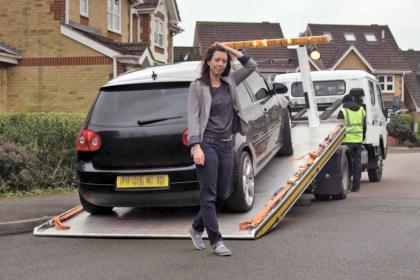
The car trade is in a state of emergency, with banks repossessing between 6 000 and 7 000 vehicles a month.
The escalating number of vehicles sold by tender or at public auctions are putting pressure on the market for used cars.
This increases the financial pressure on traders, who already have to cope with a decline of 30% in the sale of new cars.
Marcel de Klerk, executive manager of vehicle and asset financing at Absa, does not believe that traders can survive the tough environment. More than 130 traders have already closed their doors this year.
Because of consumers’ current high debt levels, interest rate increases have a bigger impact on their cash flow now than when rates reached 25% a couple of years ago, says De Klerk.
Absa, which has the second biggest market share (27%) of vehicle financing, has found that the income group earning less than R15 000 a month are hit by the most repossessions
There are also more repossessions of vehicles with longer-term financing (60 months) and more of vehicles older than five years,
The average price of repossessed vehicles is R130 000. More than 80% of repossessed vehicles are in this price class, but in the past three months there has been an increase in the value to more than R200 000.
Other luxury assets like boats and motor bikes are also repossessed at a greater rate.
Clients should contact Absa immediately when they start to struggle with payments, says De Klerk. He says repossession is the final option and that Absa would always try to restructure the debt.
He cautioned consumers not to try lessen their debt load by cancelling vehicle insurance. Their financial situation would be in a much bigger crisis if the car is in accident or stolen. De Klerk said clients are still asking for finance at a fixed interest rate, which means that many people still expect more rate hikes.
By Hennie Duvenhage